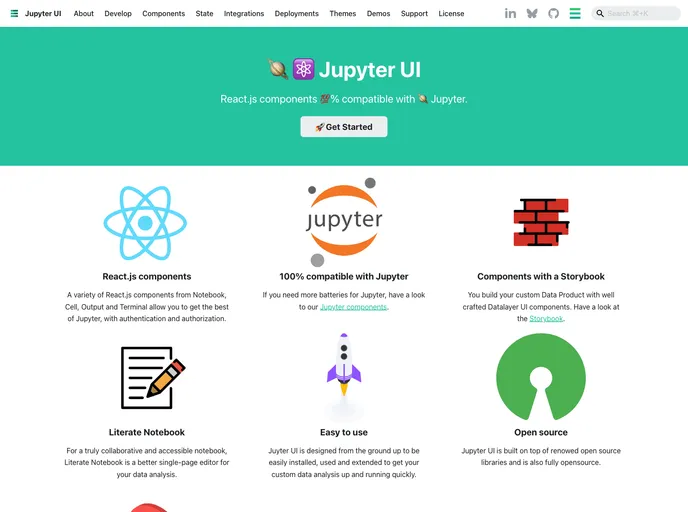Overview
Jupyter UI is an innovative set of React.js components designed specifically for frontend developers looking to create data products compatible with the Jupyter ecosystem. Unlike traditional methods that often rely on iframes to display Jupyter notebooks, Jupyter UI empowers developers to manage an integrated React tree seamlessly. This makes it easier to build custom user interfaces that suit specific application needs while harnessing the power of the Jupyter data science tools.
If you’re involved in data analysis or building data-centric applications, Jupyter UI offers a robust solution. It aims to simplify the integration of Jupyter functionalities, allowing developers to focus on crafting unique user experiences without being hindered by the limitations of existing frameworks.
Features
- Easy Integration: Streamlines the process of including Jupyter functionalities in any React.js application without the complexities of traditional methods.
- Open-Source Components: Provides a library of reusable, open-source React components tailored for building sophisticated data products.
- React.js Compatibility: Fully compatible with React.js, allowing developers to utilize familiar tools and techniques to create user interfaces.
- Support for IPyWidgets: Offers support for IPyWidgets, enhancing interactivity and user engagement within applications.
- Flexible Setup: Quick setup process and comprehensive documentation, making it accessible for developers of varying skill levels.
- Next.js and Docusaurus Integration: Provides examples and plugins for easy integration with popular frameworks like Next.js and Docusaurus.
- Comprehensive Storybook: A showcase of various components, enabling developers to visualize and experiment with the available options for custom applications.
- Active Community Support: Encourages community involvement with open channels for issues, feature requests, and collaborative contributions.




